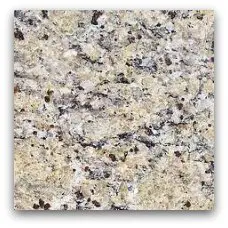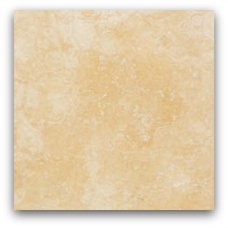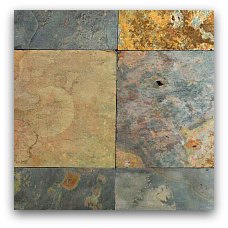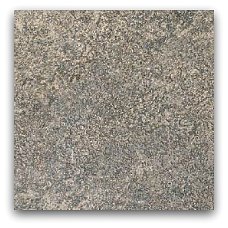Outdoor Kitchen Countertop Tile
by Lela Cooper
(Houston Texas)
QUESTION:
What type of tile can I use to build an outdoor kitchen countertop?I want one that is not fragile and requires little maintenance, not porous.
Ceramic tile? Porcelain? Or is a natural stone the best?
ANSWER:
Lela, you do have many options available for an outdoor kitchen countertop: ceramic tile, porcelain, marble, travertine tile, slate tile and even smooth stone pavers are sometimes used.Any of these can make a decent countertop.
However, nothing will beat the low-maintenance durability of a granite tile countertop for an outdoor kitchen.
I'd rate porcelain tile a very close second, though.
Cost can vary considerably among these countertop materials. So even though your priority is low-maintenance, you may want to weigh cost into your decision as well, particularly for a large countertop.
Outdoor Tile Countertop Maintenance Comparison
Granite Tile
Granite is the most durable. It is so hard it won't scratch, won't etch (get dull spots from acids like mustard, wine, soda), takes heat very well and holds up fine under all weather.
 |
The sun and rain tend to fade and wash stains out over time.
And really stains in stone can almost always be removed and are rarely permanent.
When needed application of a granite sealer will essentially eliminate any staining issues.
But many granite tile varieties are naturally stain-resistant. Meaning they are very dense, not porous and do not need to (really cannot) be sealed if you really want to compare all factors.
These naturally dense varieties tend to be granite colors in blacks, blues and greens, which you may not want in a hot, sunny climate unless your outdoor kitchen is shaded or covered.
Performing a simple water test on a sample of any natural stone / granite tile will show you how porous it is, how necessary it is to seal it and how often.
Use this test to pick out one of those non-porous, stain-resistant granites. These are the most low-maintenance tile materials you can buy.
Marble & Travertine Tile
Travertine and marble are cousins with essentially the same characteristics. Both are very durable and do not stain easy when polished.
 |
It's best to go with a honed or even tumbled marble tile.
Honed travertine and marble tile are more porous and will generally need sealing to help prevent stains. But again, stains wear away rather quick outside.
Marble and travertine will etch very easily though. Many confuse marble stains and etching and think staining is a big issue.
Actually, it's the etching that is most commonly experienced with marble countertops. Sealers will not prevent etching.
Also, marble and travertine tile are more easily scratched than granite.
Slate Tile
If you choose the right variety slate can be excellent. But it's a big IF.
 |
Others will scratch, stain, etch and generally fall apart with too much use and/or exposure to water.
Slate has a lot of texture and can be a pain to clean.
So, slate can be great, but it's a gamble so inspect, test and choose the slate tiles well.
Porcelain & Ceramic Tile
Significant performance differences exist between porcelain and ceramic, but since they are made in similar fashion they are commonly lumped together.
 |
But like slate tile... you have to buy the correct type of ceramic.
The main drawback to ceramic is chipping and cracking, which occurs far more easily than with granite, marble or travertine.
Ceramic is more prone to scratching than granite and porcelain, but not much worse than marble or travertine.
Generally scratches are not an issue with ceramic, but when it does occur not much can be done. Marble, travertine,
Porcelain tile is much better. Porcelain is pretty hard and is fairly difficult to scratch, chip or crack, so typically not a big issue with this tile material.
Another advantage of porcelain over ceramic is that the color is consistent all the way through, so if you do chip it, the internal color is the same (not a drab gray like ceramic tile) facilitating an easy filling and repair.
Freeze and thaw cycles need to be considered. Some tiles don't do well in harsh winter areas and will crack with freezing temperatures.
This can happen with any porous material, but ceramic tile is by far the most vulnerable. Using an outdoor-rated ceramic tile will greatly reduce the chance of his occurring.
The more cycles of freezing and thawing that occur in your area the greater the concern, chance of cracking and need to choose a low-absorbency tile.
Porcelain is very dense, non-porous and typically has fewer (if any) problems with freezing. Most stone tiles handle freezing as well, but again you need to "water test for absorbency" to rule out those at risk.
Ceramic and particularly porcelain are very stain-resistant, so staining is never a worry.
Tile Grout Issues
The porosity of a particular tile is a factor (particularly for freeze/thaw problems) with a tile outdoor kitchen countertop, but in truth...
The grout is a common cause of failure and problems for such installations.
Grout must be sealed to retard staining AND to prevent water / moisture intrusion that causes cracking, crumbling and general breakdown.
And if you have to seal the grout... sealing the marble, travertine or granite tile too (if needed) is not much extra work.
Ceramic and porcelain tile do not require sealing.
A water-proof "epoxy" grout can solve this issue, however..... many will turn yellow in the sun, so not a perfect solution.
Also, since grout is rough, it collects dirt and is more difficult to clean than any tile.
Thus, grout is the weak link in an outdoor kitchen countertop and is where you'll spend most of your effort on maintenance and repairs.
Another advantage of granite tile here is that it can be set with very thin grout lines to achieve a more monolithic look like a slab countertop.
Installing larger tiles and using thin grout lines will minimize maintenance issues as well.
Cost Comparison of Outdoor Kitchen Countertop Tile
Cost per square foot can seem very similar for all these materials, however, the devil is in the details and total cost can be quite different for each material.
Around $10 sq. ft. is a "ballpark" average for: Granite tiles, marble, travertine, slate and porcelain tile.
But understand there are many variables and the cost of any of the above materials can range from $7 up to $30 sq. ft. mainly depending on the price of the tile.
Some can be spendy! And FYI... the higher cost on most stone tiles only indicates how rare or difficult it is to quarry it and ship it, etc... not the quality.
Ceramic tile is the cheapest for sure. A ceramic tile countertop installation will range from $5 - $15 (avg. = $7) per square foot.
A handyman using super-discount ceramic tile could install it DIY-style for $2-$3 a square foot.
If you want to go really cheap using generic stone pavers is an option, but these stain easy and really are difficult to clean well.
Something to consider about a tile countertop vs. a slab...
I have no scientific data to back me up, but if you plan to be in this house for 5 or more years, I'd bet that you'll spend more on maintaining and repairing an outdoor tile countertop than if you installed a granite slab.
A full slab granite countertop for an outdoor kitchen is the most durable and will require the least maintenance of any surface.
If you water test the porosity and choose wisely, it will require almost no maintenance beyond proper cleaning.
Just something to think about.....
But if set on using tile for your outdoor kitchen, then I recommend you go with a granite tile countertop or porcelain.
Comments for Outdoor Kitchen Countertop Tile
|
||
|
||




